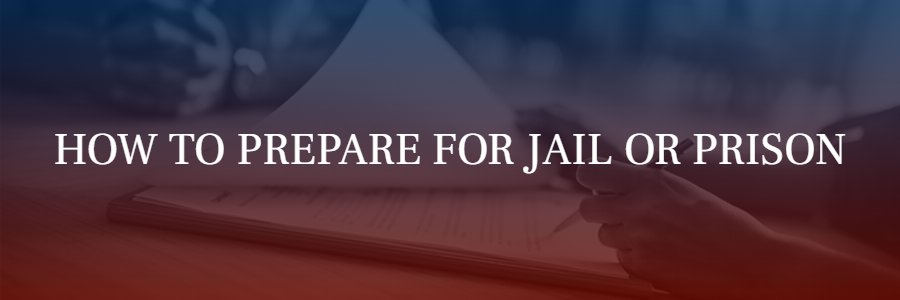How to Prepare for Prison
Posted in General FAQ'S,Riverside Jails Information,Sentencing on July 26, 2017
After being convicted of a crime, a jail or prison sentence is likely to be most people’s worst case scenario, and for good reason. Jail and prison are not pleasant experiences in even the best of cases. If you’re facing criminal charges, a qualified and experienced Riverside criminal defense lawyer can help you secure less severe punishment or even alternatives to incarceration, but some convicted individuals will not have these options. Some crimes will invariably land offenders in jail, and anyone facing imprisonment for the first time should have some idea of what to expect.

The media tends to exaggerate some aspects of prison life, but not many. In most cases, prison is as harsh and unwelcoming as most people expect it to be. If you’re fortunate enough to know when you’re going to prison in advance, there are a few things you can do to make your transition a bit easier and more comfortable. You can also prepare for your release by keeping a few items on your person once you are taken into custody.
How To Prepare Before Going to Prison
Some people will receive a prison sentence following conviction, and the court determines when the sentence begins. In some cases, convicted individuals may have some time to walk free before they report to prison, allowing them to prepare for the time they spend behind bars. If you find yourself in such a situation and have time to prepare, be sure to make the following arrangements:
- Have cash on hand: Whatever cash you have on your person when you arrive at your prison or jail location is yours to keep. Most people opt to have this cash deposited in their commissary accounts for use at the prison. During your prisoner intake period, the prison staff will confiscate and store all your clothing and other personal belongings.
- Make plans with friends and family: Let friends and family know how to contact you, send you mail, and how to transfer money to your prison account. Correspondence with loved ones, while incarcerated, is a helpful distraction during what it sure to be a difficult time. Additionally, make sure friends and family know they can order books for you from websites such as Amazon, but they cannot mail books directly to prisoners. Keep this in mind because reading is a great way to pass time in prison.
- Prepare for a rough booking process: Prisoner intake is not pleasant, and guards typically have short fuses when it comes to conflicts with prisoners. Don’t give anyone a reason to be angry with you, and cooperate with all instructions given to you by the guards. The food in jail is notoriously bad, so try to enter with a full stomach and expect an unpleasant booking process. You’ll stay in a holding cell until the time comes to leave for your incarceration.
- Stay quiet: It’s a good rule of thumb to avoid talking to anyone, both guards and other prisoners, as much as possible. This is especially true during the prisoner intake process when guards and law enforcement personnel are trying to quickly and accurately transfer and process prisoners. No one is there to make friends, so do your best to keep to yourself and avoid possible confrontations.
Incarceration takes a psychological toll and carries a significant social stigma, so do your best to avoid any behavior that may lead to a prison sentence. One of the best choices you can make after an arrest is to speak with a reliable criminal defense lawyer as soon as possible. The right attorney can help prove your innocence or better represent your side of events should you be at fault for the charges. This may help sway a judge toward a more lenient sentence, but anyone who commits a crime should prepare for the possibility of going to prison.

